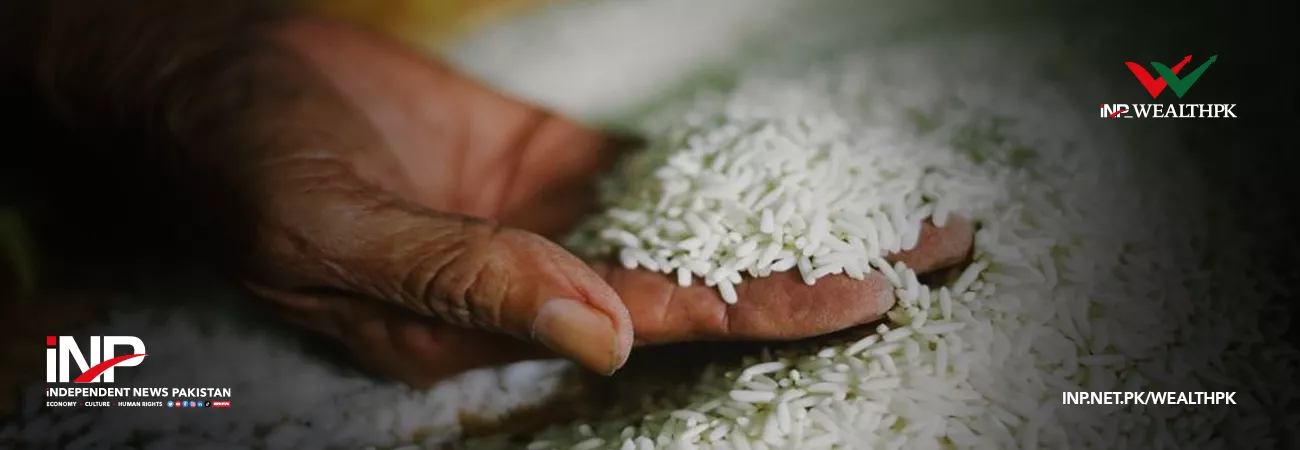INP-WealthPk
Raza Khan
The Pakistani exporters have demanded that the government give the status of industry to the rice sector to enhance its export and attract foreign investment, WealthPK reports. They asked the authorities to give incentives to rice exporters. They said that the tariff of electricity for mills should be fixed at Rs19.99 per unit. They also sought an uninterrupted supply of electricity to mills.
Chela Ram Kewlani, the Chairman of the Rice Exporters Association of Pakistan (REAP), told WealthPK that the country made enormous progress in rice production and export over the years. However, he said that it was not possible to sustain the pace of rice export without the support of the government. He said that the rice sector was one of the leading contributors to the national economy. “Rice trade should be given industry status based on its performance and contribution to the country’s economy,” he added.
Kewlani said that concession in electricity and gas tariffs should also be given to rice exporters on the pattern of other export-oriented industries. He said that Pakistan could export rice worth $5 billion in the next few years if the government provided the necessary support to exporters. “If rice trade is given the status of industry and incentives like other sectors, we can double our export,” he added.
The REAP chairman said that millions of people, including farmers, traders and transporters were associated with the rice business. “Rice trade is now an organised sector that accounts for $2 billion export, with the volume increasing gradually,” he said. He said that awarding the status of industry to the rice sector would bring investment in research, production and processing of the commodity in the country. “The investment will help increase per acre yield, quality, production and export of rice,” he added.
Kewlani said that the government should help rice exporters for increasing access to new markets by providing timely information to them regarding the global rice trade. “The government also needs to educate farmers regarding regulatory requirements and non-tariff measures imposed by importing countries,” he said. He added that government should promote financing facilities and foreign direct investment in the rice sector.
According to the Pakistan Bureau of Statistics (PBS), the country exported more than 4.877 million metric tonnes of rice valuing $2.511 billion in the financial year 2021-22 against 3.684 million metric tonnes worth $2.041 billion exported in the year 2020-21. It says that the export of Basmati rice grew by 22.09% in the previous fiscal. The country also fetched $1.181 billion by exporting more than 4.126 million tonnes of rice other than Basmati in the year 2021-22 against the export of 3.065 million tonnes valuing $1.473 billion in the financial year 2020-21.
According to the Trade Development Authority of Pakistan (TDAP), the country exports four million tonnes of rice annually. The value of Pakistan’s rice export from 2015 to 2021 on average hovered around $1.98 billion. The major destinations of Pakistani rice include China, Afghanistan, Kenya, the United Arab Emirates, the United Kingdom, the Kingdom of Saudi Arabia, Mozambique, Belgium, Italy, Oman, and some African countries.
However, the per-hectare yield of rice in Pakistan is on the decline. The yield of rice in Pakistan from 2015 to 2020 averaged around 2.5 tonnes per hectare. The world’s average rice production is 4.7 tonnes per hectare. Despite changing technological scenarios and the adoption of modern techniques, Pakistan is still trapped in the low-yield groove. “So, it is losing its competitiveness in international retail markets,” said the TDAP report. It said that Pakistan should capture developing markets such as Africa and Central Asia. “Market diversification efforts need to be strengthened,” said the report available with WealthPK.
Credit : Independent News Pakistan-WealthPk




